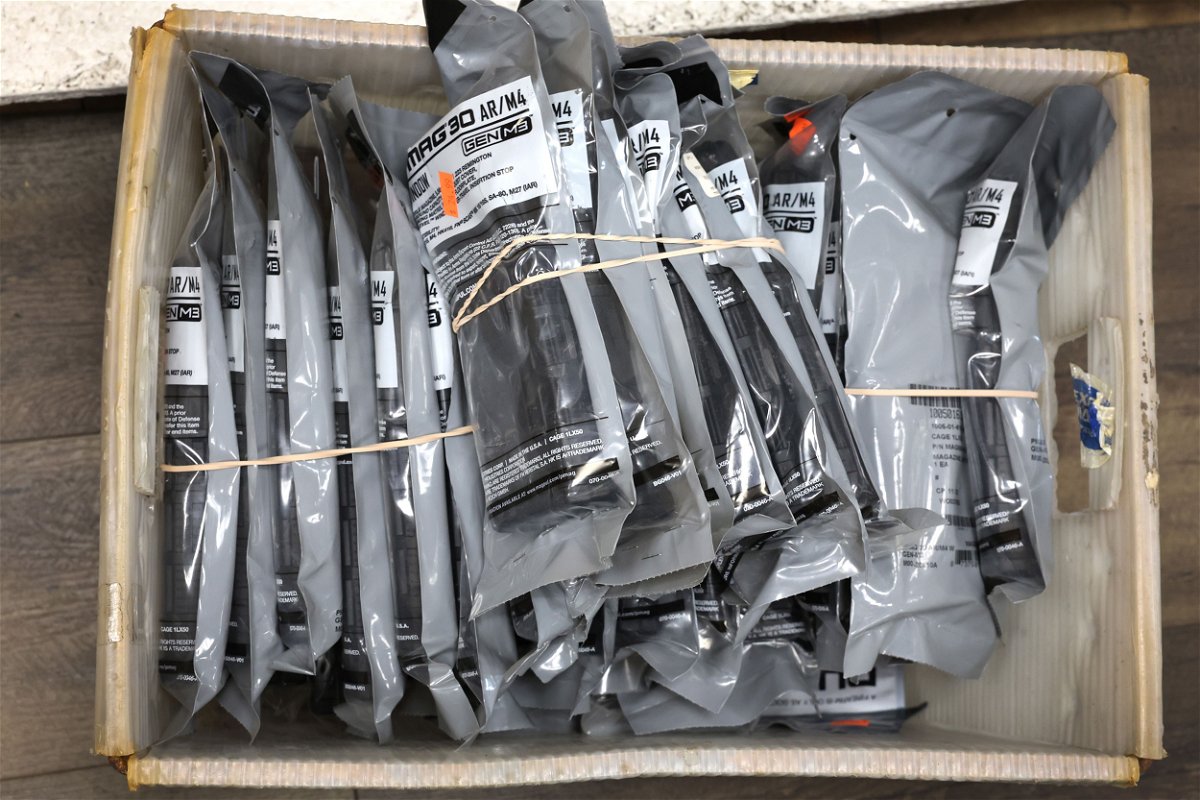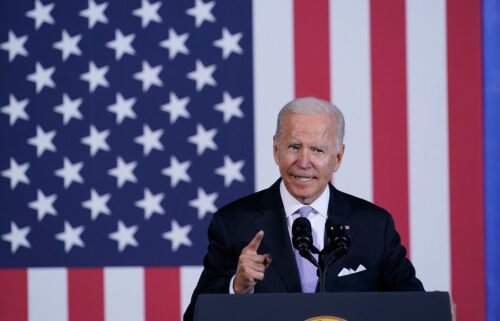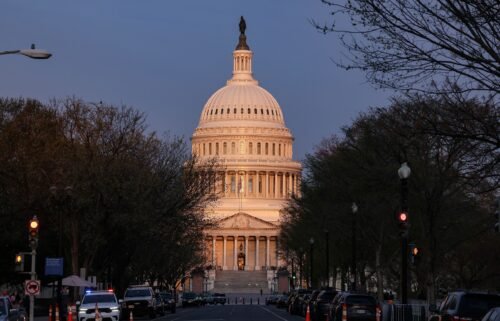Illinois took action after the Highland Park shooting. But the assault weapon ban there still faces legal hurdles

High-capacity rifle magazines are removed from display at Freddie Bear Sports on January 11 in Tinley Park
By Eric Bradner, CNN
As Nashville police left a news conference Monday, Ashbey Beasley unexpectedly moved in front of the still-live microphones and television cameras.
Beasley then told her story: She and her son survived the Fourth of July parade mass shooting in her hometown of Highland Park, Illinois, last year, in which a gunman used an assault-style rifle to kill seven and injure dozens more people.
The two happened to be on a family vacation in Nashville this week, visiting her sister-in-law, when a shooter armed with an assault-style rifle, a pistol and a handgun killed three children and three adults at a Christian school in the city.
“How is this still happening?” Beasley asked. “How are our children still dying, and why are we failing them?”
“Aren’t you guys tired of this? You guys sick of it? We have to do something,” she said.
In the wake of last year’s parade shooting, Illinois officials did seek to do something, enacting new gun restrictions aimed at banning the sale of the kinds of firearms used in the Highland Park and Nashville shootings.
But what’s happened in Illinois in the wake of those shootings, as the Democratic-controlled state sought to impose new gun restrictions, underscores the legal and geographic hurdles gun control advocates face in imposing measures such as banning the sale of assault rifles — even in the wake of ongoing mass shootings across the country.
The pro-gun control group Everytown ranks Illinois’ gun laws as the seventh-strongest in the nation as of January.
However, the state has struggled to restrict the flow of illegal guns, particularly in Chicago. US Bureau of Alcohol, Tobacco, Firearms and Explosives firearms trace data shows that less than half the guns recovered in Illinois in 2021 — the most recent year available — were purchased in-state. Many came from neighboring Indiana, with much more lax gun laws.
Illinois officials have also faced legal hurdles to implementing new gun restrictions.
State lawmakers in January passed and Gov. J.B. Pritzker signed into law a measure that would ban assault-style rifles and high-capacity magazines. Those who already own such rifles would face limitations on their sale and transfer, and would have to register them with the Illinois State Police by 2024.
But that law — which came about six months after the Highland Park shooting — faced immediate lawsuits in state and federal court, arguing it violated the Illinois and US constitutions.
A Macon County judge found earlier this month that exemptions to the law, including for law enforcement officers and armed guards at federally supervised nuclear sites, violated the equal protection clause of the state’s constitution.
The Illinois Supreme Court agreed to fast-track the state’s appeal, slating oral arguments for May.
The state law also faces challenges in federal court. The National Rifle Association argued in one challenge that the measure violates the Second Amendment.
Richard Pearson, the executive director of the Illinois State Rifle Association, argued in a statement that Second Amendment rights were intended to extend to citizens and the military equally because “technology changes, but civil rights do not.”
“At the time, they had pen, paper, and ink; they did not have cell phones, the internet, or Facebook,” he said. “Free speech applied then as it does now.”
Illinois is a reliably Democratic state, but one with a clear split between the deep blue Chicago area and the vast swaths of far more conservative ground outside the state’s most populous region.
That split underscored why the new gun law faced opposition from the Illinois Sheriffs’ Association, with 90 of the state’s 102 county sheriffs saying they would not enforce it.
Pritzker, the Democratic governor reelected last year to a second term, told CBS News in January he believes the state will win its legal battles over the new law.
“We think we’re going to win, and we’ve got the Constitution behind us and constitutional scholars and experts who helped craft the legislation,” he said then. “So, I feel pretty good about the ultimate result.”
The-CNN-Wire
™ & © 2023 Cable News Network, Inc., a Warner Bros. Discovery Company. All rights reserved.


